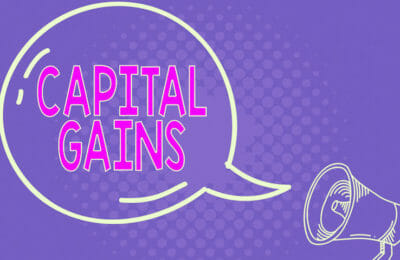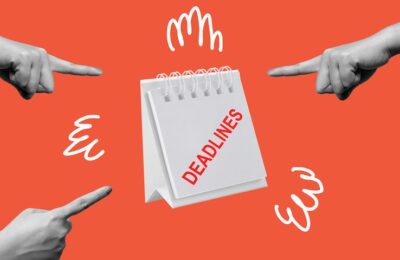Freelancers – mistakes to avoid
A friend of mine recently decided to join the merry band of freelancers – an exciting, yet challenging move.
Freelancing is something of a double-edged sword: on the one hand, it’s the dream to be able to choose the clients and projects you take on and to be your own boss. On the other, it can be a financial minefield, with both personal and professional obligations to cover.
As such, there’s plenty of room for inadvertent mistakes to be made. These often come in the form of tax-related issues but personal finance ones can creep in too. There are business and personal expenses to disentangle, HMRC forms to fill in, and accounting software to negotiate.
With a fair amount of experience behind us when it comes to advice on tax and finances, we at THP Chartered Accountants have come up with a few common freelance mistakes to avoid, so you’ll have a little bit of a head start if you choose to go it alone.
1. Treating your Turnover as Profit
If you’re switching from an employed life to freelancing, it’d be easy to make this mistake. After all, when you’re employed, your monthly salary is all take-home – tax, NI contributions and overheads are all taken care of by your employer. When you’re your own boss however, there are lots of additional costs to consider, from business registration fees to hosting fees for your website.
With that in mind, you can quickly find yourself struggling to keep up, so try to allocate around 30 percent of your total earnings for tax and operational costs each month.
2. Lacking discipline with personal expenses
One of the biggest changes when going freelance is the unpredictability of income.
Gone is the fixed monthly salary; instead you rely on being able to bring in enough business to live comfortably from week to week and month to month.
Success requires a level of discipline when it comes to budgeting for personal expenses. If, after a successful month you allow yourself to be too flash with your cash, you may come unstuck the following month when business is slower.
To avoid finding yourself in an unpleasant situation, ensure you allocate sufficient of your after-tax funds to the necessary places before indulging.
That means making sure you can pay your mortgage and bills, run your car and eat before spending on anything else. It’s also wise to keep a small amount aside – even if it’s only five percent –just in case next month proves to be less prosperous.
3. Not tracking income and expenses
One of the best tips for freelancers we can offer is to track your income and expenses from the very beginning. When you go solo, you’re responsible for paying your own taxes. Failing to keep track of what is going into and coming out of your bank account will leave you in a mess when the time comes to submit your returns to HMRC.
Open a business bank account to ensure everything to do with the business stays separate from your personal expenditure and sign up to an online accounting system that makes it easier for you to account for every penny you’ve earned and spent.
Trying to pick apart expenses on fuel, lunches and equipment when they’re tied up with your personal expenses can be a nightmare, so keep them separate and log them to ensure you can claim for all the tax deductible items.
4. Missing a tax deadline
HMRC is very clear on this: missing the deadline for tax return submissions incurs a penalty. If you’re two weeks late you can find yourself owing interest that significantly impacts your current earnings, so ensuring you file your tax returns on time is essential.
Here again, a good freelance strategy is to use an online accounting system.
Even basic software will allow you to send yourself a reminder to submit your return well before it’s due, giving you plenty of time to collate the information and get it checked before the deadline.
5. Making incorrect tax claims
It’s inevitable that your business will have a range of running costs.
Some of these – referred to by HMRC as ‘allowable’ expenses – can be deducted to work out your taxable profit. So if your turnover is £30,000 in the tax year and you spend £5,000 in allowable expenses, you only need to pay tax on the remaining £25,000.
The government classifies the following as allowable expenses:
- Office costs such as rent, utilities, stationary and phone bills
- Travel costs such as fuel or public transport fares
- Clothing costs if a uniform is required
- Stock or raw materials that you buy to sell on
- Insurance and bank fees
- Costs associated with marketing such as website costs
There are restrictions around this however, such as when you use a device or piece of equipment (such as a mobile phone) for business and personal use.
Things are also a little different if you work from home – a proportion of your home running costs can be claimed against tax.
Ensure you are aware of the government guidelines before claiming for items or fees you aren’t owed as this is an area where there’s no substitute for honesty.
6. Not seeking help
Tax is a notoriously complex area for freelancers and relatively easy to get wrong.
While the government has stated that it’s engaging in measures to make the tax process more straightforward, there’s still some way to go. We’d therefore strongly advise freelancers to at least get their tax returns checked by a professional before submitting them.
If the tax return form is giving you a headache or you’re unsure what you can claim, seeking advice from an accountant is the best way to ensure your tax return is accurate. Many tax professionals have years of experience working with all kinds of businesses and can help you ensure you don’t over or under-claim. Even if you’re fairly confident that you’ve filled in your form correctly, it’s prudent to get it checked for peace of mind.
About Mark Ingle
Owner-manager business specialist, Mark Ingle is key to building relationships with clients at the Chelmsford office. “I like to see clients enterprises grow and succeed.” Mark explains, “The team here has a lot to offer and I can see a lot of new businesses responding to that.”
Having worked for accountancy practices in London and Essex, Mark has worked with a range of companies varying in size. For Mark, THP stands out for its “local firm approach with the resources of a larger practice.”
Although a keen traveller, Mark is focused on giving his clients at THP the highest service, “Right now, I aim to help the clients we have to the best of my ability which will help me attract more of the right clients in the future.”
Mark’s specialist skills:
- Annual and Management Accounts
- Tax and VAT
- Strategy and Business Planning
- Marketing and Sales
- Business Development












